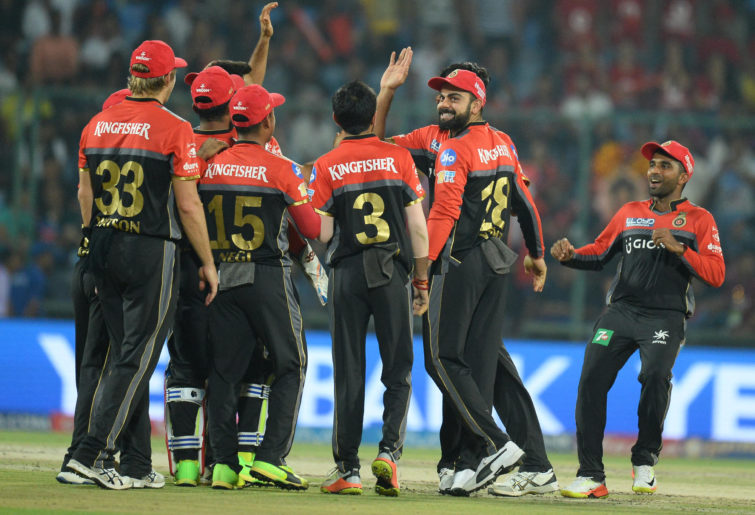Calamitous miss as Lucknow botch near certain run out with the game on the line
With Rajasthan needing 25 off 17, both batsmen ended up at the same end but the bowler dropped the throw from his teammate -…
Opinion
T20 cricket has been constantly evolving since its inception. From the hit and giggle that it was marketed as back in 2003 to the now ever-expanding juggernaut that occupies the majority of interest within cricket in 2023, it has been a needed change to help the sport to stay in touch with younger demographics and grow in the 21st century.
SA20 is a newly formed competition consisting of six teams across South Africa that are all owned by IPL franchises. For instance, the Joburg Super Kings are owned and run by Chennai Super Kings, Durban SuperGiants are owned and run by the Lucknow SuperGiants and the same goes for the other four teams. To essentially sum it up, it’s the IPL – South Africa edition.
Many IPL clubs have now begun to branch out into overseas T20 leagues, as shown recently in the ILT20 which is located in the UAE with the Mumbai Indians, Kolkata Knight Riders and Delhi Capitals also owning a team as well as Kolkata’s involvement with Trinidad and Tobago Knight Riders in the CPL.
This ever-expanding branching of IPL franchises arks similar comparisons to the City Football Group which currently owns Manchester City, Melbourne City, New York City FC and various football clubs across the world. This expansion of franchise cricket into other competitions has been slowly building for a while now and it appears to have taken the next step to where all teams within a T20 league are owned by other teams.
But should we as a cricket community embrace the possibility of privately-owned franchises like those in the IPL having greater involvement in other domestic T20 leagues?
While in other domestic T20 competitions such as Australia’s BBL, England’s T20 Blast and NZ’s Super Smash teams are completely owned and administered by the national cricket association, in the IPL the clubs are privately owned with the BCCI acting as an administrator.

(Photo credit should read SAJJAD HUSSAIN/AFP/Getty Images)
This difference in models has allowed the IPL to grow into the biggest T20 league in the world due to the amount of money involved, to the point where it has essentially created its block within the international calendar which has meant that it can secure some of the world’s best talent to compete and thus keep its status as the premier T20 competition.
Using established brand names of these IPL franchises certainly helps provide credibility to the newly formed league and can use its leverage to bring international talent across into these competitions. This has been a key component for SA20 which sees IPL franchises having their overseas players also joining the league.
Players such as Jos Buttler, Phil Salt, Jofra Archer, Alzarri Joseph, Kyle Mayers and Obed McCoy are all playing with their associate club from the IPL in the SA20.
Whilst there may be ethical issues in monopolising talent in this way, which could be perceived to be anti-competitive, it allows for overseas talent to play in these competitions which in turn generates interest within the competition creating the revenue to pay them.
With the amount of money that’s being invested in T20 by these privately-owned franchises, it leaves competitions such as the BBL playing catch-up.
We are already seeing leagues like the BBL begin to integrate features such as the draft as a way to keep up with the trends by providing players with a tiered ranking that determines their salary to help attract international talent.
The only issue with that is SA20, ILT20 and other foreign leagues that are privately owned can outspend them and thus diminishes the quality of their counterparts as shown by the likes of Rashid Khan, Trent Boult, Colin Munro, James Vince and many others all leaving halfway through the season to go and play in these new start-ups.
It seems that the future of T20 leagues as a whole is heading in the direction towards private ownership and that it is slowly becoming an arms race for domestic leagues to maintain their prestige. The only way to keep up for leagues such as the BBL, Super Smash and T20 Blast is to open its doors to private ownership.
However, that is a double-edged sword that poses as many risks as it does rewards – just ask the now-defunct Mzansi Super League which SA20 is replacing, or even the AFL.
Perhaps the solution to this is for more national associations such as Cricket Australia and New Zealand Cricket to offer the ability of private ownership in teams whilst maintaining a 51 per cent share to still hold a majority stake, minimising the possibility of mismanagement while still creating the ability for more investment within these competitions to improve and attract high-end talent.
Regardless of what these national associations will do to maintain the level of competition that they have, the prevalence of private ownership in T20 cricket is no longer an issue that can be ignored. Whilst the practice has undoubtedly worked in the IPL, to assume that it can be copied and pasted like it has been done in South Africa and the UAE and be as successful as the IPL is foolish.
The model that the ILT20 and SA20 present certainly has a future within the sport but should be treated with caution about its longevity compared to its national association-backed and run competitions.